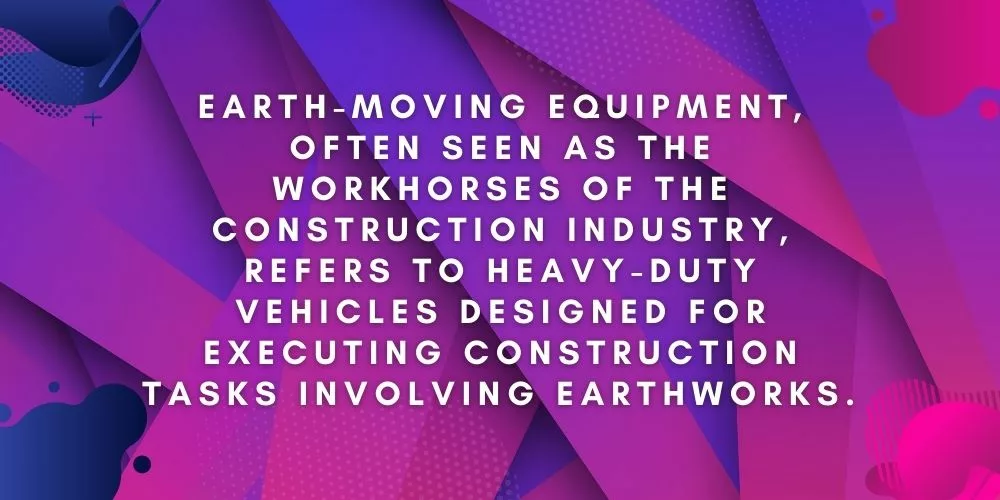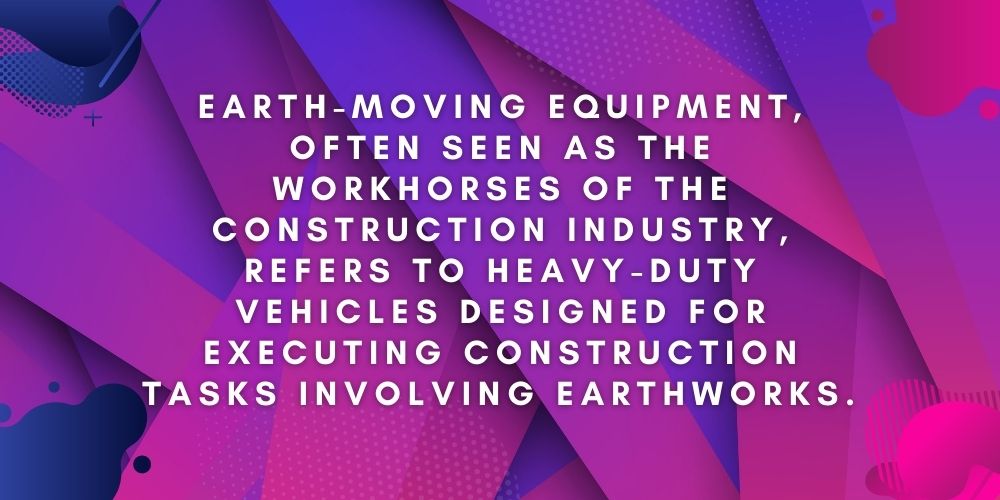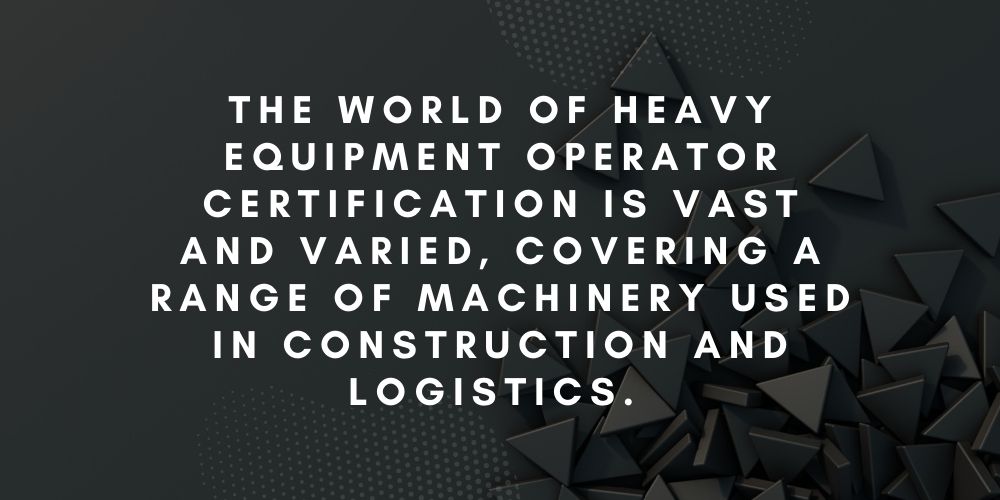Heavy Duty Machine Operator Course: Top 3 Heavy Equipment Training and Certification 2025
Heavy Equipment Training: There’s no denying that heavy equipment training is the backbone of every efficient construction or excavation site. It underpins a safe and efficient working environment, from hazard identification to risk assessment.
This article will navigate you through the landscape of heavy machinery operator equipment training, the importance of certification, and available courses at Coggno.
Save Thousands Of Dollars With Coggno Prime Subscription
Earth Moving Equipment
Earth moving equipment, often seen as the workhorses of the construction industry, refers to heavy-duty vehicles designed for executing construction tasks involving earthworks.
They’re employed in various capacities, from road building to site preparation, and include machinery like bulldozers, excavators, and backhoes.
Heavy Equipment Operator Training And Certification
The Heavy Equipment Operator Certification, often associated with OSHA (Occupational Safety and Health Administration), formally validates an operator’s skills in managing heavy machinery safely and efficiently.
OSHA heavy equipment operator certification involves rigorous training programs to equip operators with necessary safety protocols, machine handling techniques, and industry best practices.
Load Securement For Heavy Equipment (US) Course
Why is Heavy Equipment Operator Training Certification Necessary in the USA?
Certification provides a competitive edge and ensures safety in a country where the construction industry is constantly booming. It demonstrates that an operator can handle the equipment and understand crucial safety standards. These certifications, such as the OSHA heavy equipment operator certification, are often prerequisites for landing reputable and well-paying jobs in the sector.
Case Study – Coggno & Harvard Revolutionizing Training Delivery
Heavy Equipment Training Courses and Certification 2025
Coggno offers many heavy equipment training courses. The top 3 heavy equipment operator training courses are:
- Earthmoving Equipment
- Load Securement For Heavy Equipment (US) Course
- Load Securement For Heavy Equipment (US) (Spanish) Aseguramiento De Carga Para Equipos Pesados (US) Course
1. Earthmoving Equipment
This Earthmoving Equipment course is a comprehensive program designed with meticulous attention to detail. It addresses the industry’s best practices and conforms to OSHA Standards 1926.602 and 1910.178.
A Deep Dive into Earthmoving Equipment
The course commences by introducing learners to various earthmoving equipment, such as excavators, bulldozers, and backhoes.
As the learner navigates through the course, they will be acquainted with the common hazards associated with each type of equipment.
Must Read: 11 Best Healthcare Courses and Certifications
Prevention is Better than Cure
The Earthmoving Equipment course emphasizes the importance of preventive maintenance and inspection. Regular equipment maintenance is pivotal in extending machinery lifespan, ensuring smooth operations, and safeguarding against breakdowns.
The course also accentuates the necessity of regular equipment inspections, which are crucial in early hazard detection and prevention.
Interactivity Brings Learning to Life
One of the highlights of the course is an interactive simulation where learners traverse a virtual construction job site. This immersive experience is designed to help trainees identify common hazards associated with different types of earthmoving equipment in operation.
It’s a unique opportunity for learners to apply their theoretical knowledge in a realistic yet safe environment.
Must Read – Learn to Avoid the Top Five Workplace Safety Hazards
Compact yet Comprehensive
This 15-minute course ensures efficient learning. Despite its concise duration, it leaves no stone unturned, covering all the necessary aspects related to earthmoving equipment. The course is offered in English, catering to a broad audience.
Who Can Benefit?
This course is ideal for employees directly or indirectly involved with earthmoving equipment.
By the end of the program, learners will be able to:
- Classify the main types of earthmoving equipment;
- Comprehend the importance of preventive maintenance and inspection;
- Identify different types of safety controls;
- Recognize hazards associated with earthmoving equipment
2. Load Securement For Heavy Equipment (US) Course
Safe cargo securement is a necessity, not a luxury. The Load Securement For Heavy Equipment (US) Course offered by UL is an essential learning tool for those tasked with loading, unloading, and transporting heavy equipment.
This course is structured around the North American Cargo Securement Standard, which forms the basis for cargo securement and distribution regulations in the United States and Canada.
Foundations of Load Securement
The course offers a detailed understanding of the North American Cargo Securement Standard. It helps learners gain an in-depth insight into these regulations. They are crucial for ensuring cargo stays securely in place during transportation and safeguarding drivers and other road users.
Factors at Play
The course explores the various forces that act upon cargo during transportation, helping learners comprehend the physics behind cargo movement and the necessity of effective securement.
This understanding equips them to devise securement strategies that efficiently counteract these forces, leading to safer transportation.
Safety First
The course delves into the best practices for these crucial stages of the transportation process, equipping learners with the know-how to perform these tasks efficiently and safely.
Decoding Securement Systems
The course helps learners identify the different elements of a securement system and understand their properties. This knowledge is crucial when selecting or inspecting securement systems.
Designed for Convenience
The course, lasting 23 minutes, is designed to gain knowledge quickly. Conducted in English, it comes with a certificate upon completion, serving as a formal recognition of the learner’s new skills.
Ideal for equipment operators and drivers, the course also includes a bookmarking feature, allowing learners to navigate through the modules easily.
System Requirement
System requirements must be met to ensure optimal performance and seamless learning. Below are the compatible browsers and operating systems:
- You can access the course using Microsoft Internet Explorer 10 or higher if you’re a Microsoft user.
- Mac OS users running version 10.10 or 10.11 can access the course without issues.
- For web browsers, Apple Safari versions 8 or 9 are compatible.
- iPad and Android Tablet users can also enjoy this course, as they’re running the latest iOS and Android versions.
Note: While mobile phones can technically run the course, playback is not recommended. For the best learning experience, using a PC, laptop, or tablet is ideal. Also, for optimal course playback, it is recommended to close all other browser windows when viewing the course.
3. Load Securement For Heavy Equipment (US) (Spanish) Aseguramiento De Carga Para Equipos Pesados (US) Course
UL’s Load Securement For Heavy Equipment (US) Course is now available in Spanish as Aseguramiento De Carga Para Equipos Pesados (US). It is an essential resource for those involved in the loading, unloading, and transporting of heavy equipment.
This comprehensive course, based on the North American Cargo Securement Standard, is designed to facilitate safe cargo transportation in the United States and Canada.
Load Securement And Distribution (US) Course
Understanding Load Securement
The course helps learners remember what is included in the North American Cargo Securement Standard. These regulations, which form the backbone of cargo securement and distribution in North America, are crucial to ensuring cargo stays secure, thereby safeguarding drivers and other road users.
Forces at Work
The course helps learners recognize the forces acting on the cargo during transit, a critical aspect of cargo securement. Understanding these forces allows learners to develop effective strategies to counteract them, ensuring safer transportation.
Nailing the Art of Safe Loading and Unloading
UL’s course delves deep into safe practices for loading and unloading heavy equipment. By honing these skills, learners can prevent accidents and ensure the efficient movement of heavy machinery.
Deciphering Securement Systems
The course enables learners to identify these elements, strengthening their ability to choose and inspect securement systems effectively.
Opting for Safety and Legality
The course aims to empower learners to select secure and legal methods of securement and distribution. With the knowledge gained from the course, learners can make informed, safety-oriented decisions that also comply with regulatory standards.
Compact Learning in Spanish
This 28-minute Spanish-language course ensures efficient knowledge delivery. It has a certificate of completion and a bookmarking feature for easy navigation.
Ensuring a Seamless Learning Experience
The course is designed for optimal performance on various platforms, including the following:
- Microsoft Internet Explorer 10 or higher (11+ preferred);
- Microsoft Edge;
- The latest version of Google Chrome;
- iPad iOS (latest);
- Mac OS 10.10 or 10.11 (PC only);
- Apple Safari 8 or 9
Course playback on mobile phones isn’t recommended for optimal viewing, and learners are encouraged to close other browser windows when viewing the course.
Heavy Duty Machine Operator Course Importance
Having a Heavy Earth Moving Equipment Course provides certain advantages in the job market. Some of them are:
- Safety Compliance: The course ensures operators are equipped with the knowledge of safety guidelines, minimizing workplace accidents.
- Efficiency Improvement: Trained operators can perform tasks more efficiently, reducing project timelines.
- Equipment Lifespan: With training, operators can better maintain the machinery, extending its lifespan.
- Competitive Edge: Such certification gives operators an advantage in the job market.
- Insurance Premium Reduction: Companies with certified operators often enjoy lower insurance premiums.
- Reduced Liability: Trained operators lessen the risk of accidents, reducing company liability.
- Regulatory Compliance: Training assists in adhering to regulatory standards.
- Employee Confidence: Certification boosts operator confidence, leading to better performance.
- Customer Trust: Customers prefer working with companies employing certified operators.
- Maintenance Costs: Knowledgeable operators can reduce the maintenance costs of equipment.
Case Study: How Coggno Empowered Costo to Achieve Unprecedented Compliance and Safety Standards
Types of Heavy Equipment Operator Training
The world of heavy equipment operator certification is vast and varied, covering a range of machinery used in construction and logistics.
Some of the most sought-after certifications include:
- Forklift Operator Training Certification: The forklift operator training certification equips operators with the knowledge to handle forklifts safely, ensure proper load balance, and understand pedestrian safety.
- Crane Operator Certification – Crane operators must master precision and caution. This certification ensures that operators understand crane mechanisms and safety measures
- Excavator Training – Excavators are common at construction sites. Excavator training ensures operators understand how to handle these machines with the correct safety precautions.
- Bulldozer Training – As bulldozers are used for heavy pushing and moving tasks, operators must understand their functionalities and safety precautions.
- Backhoe Operator Certification – Backhoes are versatile machines. Certification ensures operators understand how to handle various tasks using backhoes, from digging to heavy lifting.
- Heavy Equipment Safety Training – The training is a holistic approach, ensuring operators understand the safety aspects of all types of heavy equipment.
Online Safety Training Courses
How Does Coggno Make a Difference?
Coggno’s comprehensive range of courses aimed at heavy equipment operator training sets it apart. Focusing on offering high-quality, accessible training materials, Coggno helps potential operators gain the knowledge and skills they need.
Each course is carefully designed to meet industry standards, providing detailed instructions on operating different types of heavy machinery, safety guidelines, and practical tips for real-world applications. Furthermore, Coggno’s flexibility in online learning means trainees can study at their own pace, making the learning process more comfortable and effective.
Must Read: 10 Best Warehouse Safety Certification Courses
Heavy Equipment Training FAQs
Q. What types of heavy equipment are covered in heavy equipment training programs?
Heavy equipment training programs cover a wide range of machinery, including bulldozers, excavators, cranes, forklifts, and loaders. These programs aim to provide comprehensive instruction on the safe and efficient operation of various heavy equipment types.
Q. What are the prerequisites for enrolling in heavy equipment training?
Prerequisites for heavy equipment training programs may vary, but most require participants to be at least 18 years old and possess a high school diploma or equivalent. Additionally, individuals may need to meet certain physical requirements and demonstrate basic mechanical aptitude to ensure they can safely operate heavy machinery.
Q. What career opportunities are available after completing heavy equipment training?
Completing heavy equipment training opens up various career opportunities in industries such as construction, mining, forestry, and transportation. Graduates may pursue roles as heavy equipment operators, crane operators, construction equipment mechanics, or site supervisors, among others, leveraging their specialized skills in operating heavy machinery.
Q. What distinguishes heavy machinery training from general equipment operation courses?
Heavy machinery training specifically focuses on the operation and maintenance of large, complex machinery used in construction, mining, and other industries. Unlike general equipment operation courses, heavy machinery training provides in-depth instruction tailored to the unique challenges and requirements of operating heavy-duty equipment.
Q. How can heavy machinery training enhance workplace safety?
Heavy machinery training emphasizes safety protocols, risk assessment, and proper equipment operation techniques to minimize accidents and injuries in the workplace. By ensuring operators are well-trained and knowledgeable about safety procedures, heavy machinery training plays a crucial role in creating a safer work environment for all personnel.
Q. What are the advantages of pursuing heavy machinery training online?
Heavy machinery training online offers flexibility. It allows participants to learn at their own pace and convenience without the need to travel to a physical location. Online programs often feature interactive simulations, video tutorials, and virtual classrooms, providing a comprehensive learning experience accessible from anywhere with a stable internet connection.
Q. Can individuals with busy schedules or full-time jobs benefit from online heavy machinery training?
Absolutely. Online heavy machinery training is particularly advantageous for individuals with busy schedules or full-time jobs, as it allows them to balance their learning commitments with other responsibilities. With 24/7 access to course materials and flexible study options, participants can progress through the training at their own convenience, making it an ideal choice for working professionals seeking career advancement opportunities.
Q. Is heavy equipment operator certification necessary in the USA?
A. Yes, heavy equipment operator certification ensures that you are skilled to operate a heavy equipment. It provides a competitive edge and ensures safety compliance in the construction industry.
Q: Why is heavy machinery training necessary for operators?
A: Heavy machinery training is necessary for operators to ensure they have the skills and knowledge to handle equipment safely and efficiently. Proper training helps prevent accidents, reduces equipment damage, and complies with safety regulations, ensuring a safer work environment.
Q: What certifications are required after completing heavy machinery training?
A: After completing heavy machinery training, operators are required to obtain certifications such as OSHA (Occupational Safety and Health Administration) certification, NCCER (National Center for Construction Education and Research) certification, or specific equipment operator licenses, depending on the machinery they will be using.
Q: How often should heavy machinery training be updated or renewed?
A: Heavy machinery training should be updated or renewed regularly, typically every three to five years, or as required by specific regulations and industry standards. Regular refresher courses ensure operators remain knowledgeable about the latest safety practices and technological advancements in machinery.
Q: Can heavy machinery training improve operational efficiency?
A: Yes, heavy machinery training can improve operational efficiency by ensuring operators are well-versed in the proper use and maintenance of equipment. Trained operators can perform tasks more quickly and accurately, reducing downtime and increasing productivity.
Q: What are the benefits of enrolling in heavy machinery operator courses?
A: Enrolling in heavy machinery operator courses provides numerous benefits, including comprehensive training on various equipment, enhanced safety skills, and preparation for necessary certifications. These courses improve job readiness and increase employment opportunities in the construction and industrial sectors.
Q: What certifications can be obtained through heavy machinery operator courses?
A: Heavy machinery operator courses lead to certifications such as the OSHA certification, NCCCO (National Commission for the Certification of Crane Operators) certification, and specific equipment certifications like forklift operator licenses. These certifications validate the operator’s skills and knowledge, making them more competitive in the job market.
Q: How do heavy machinery operator courses ensure compliance with industry regulations?
A: Heavy machinery operator courses ensure compliance with industry regulations by providing training that adheres to standards set by organizations like OSHA and ANSI (American National Standards Institute). These courses cover necessary safety protocols, operational guidelines, and legal requirements, ensuring operators meet regulatory compliance.
Q: What topics are typically covered in heavy machinery operator courses?
A: Heavy machinery operator courses cover a range of topics, including equipment operation techniques, safety procedures, maintenance and inspection protocols, and regulatory compliance. They may also include hands-on training to provide practical experience with the machinery.
Q: How do heavy machinery operator courses contribute to career advancement?
A: Heavy machinery operator courses contribute to career advancement by providing operators with the skills and certifications needed to qualify for higher-level positions and specialized roles. This training enhances their expertise, making them more valuable to employers and increasing their potential for higher earnings and career growth.
Q. What are the eligibility criteria for machine operator courses?
A: Eligibility criteria for machine operator courses typically include a minimum age requirement (usually 18 years old) and a basic understanding of mechanical systems. Some courses might require additional qualifications or experience.
Q. What kind of machines can I learn to operate through machine operator courses?
A: Machine operator courses cover a wide range of machinery, including but not limited to construction equipment (excavators, bulldozers), manufacturing machinery (lathes, milling machines), and agricultural machinery (tractors, harvesters).
Q. Are there job placement opportunities after completing machine operator courses?
A: Many machine operator courses offer job placement assistance to help graduates find employment in their field. The specific opportunities depend on the course provider, the student’s performance, and the job market conditions.
Q. What kind of machinery can I learn to operate through heavy machinery operator training?
A: Heavy machinery operator training covers equipment used in construction, mining, and other industries. This includes machines such as excavators, bulldozers, cranes, loaders, and backhoes.
Q. Is there a physical fitness requirement for heavy machinery operator training?
A: Yes, operating heavy machinery requires physical strength and endurance. Training programs often include physical fitness components to prepare students for the demands of the job.
Q. What safety measures are covered in heavy machinery operator training?
A: Heavy machinery operator training emphasizes safety. Students learn about machine operation procedures, safety equipment, emergency procedures, and hazard identification and control.
Q. Do I need a license to operate heavy machinery?
A: Licensing requirements for heavy machinery operators vary by location. Some jurisdictions require specific licenses or certifications, while others may only require heavy machinery operator training and experience.
Q. What are the career prospects after completing heavy machinery operator training?
A: Graduates of heavy machinery operator training programs can find employment in construction, mining, agriculture, and other industries. Job opportunities may include working on construction sites, operating equipment in quarries or mines, or maintaining machinery in a fleet.
Conclusion
With a solid understanding of why heavy equipment training is necessary and what it entails, it’s clear how it can make a significant difference in your career or business. Coggno, with its range of high-quality courses, makes obtaining this training a straightforward and enriching process, helping you achieve your professional goals. You can contribute to a safer and more efficient construction industry with the right certification and knowledge.





















